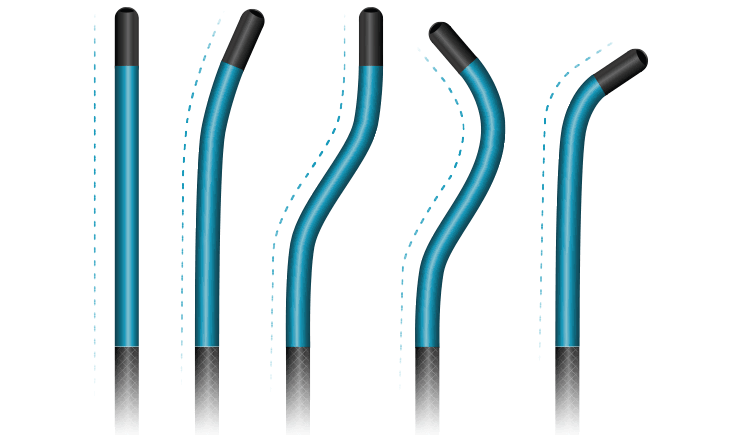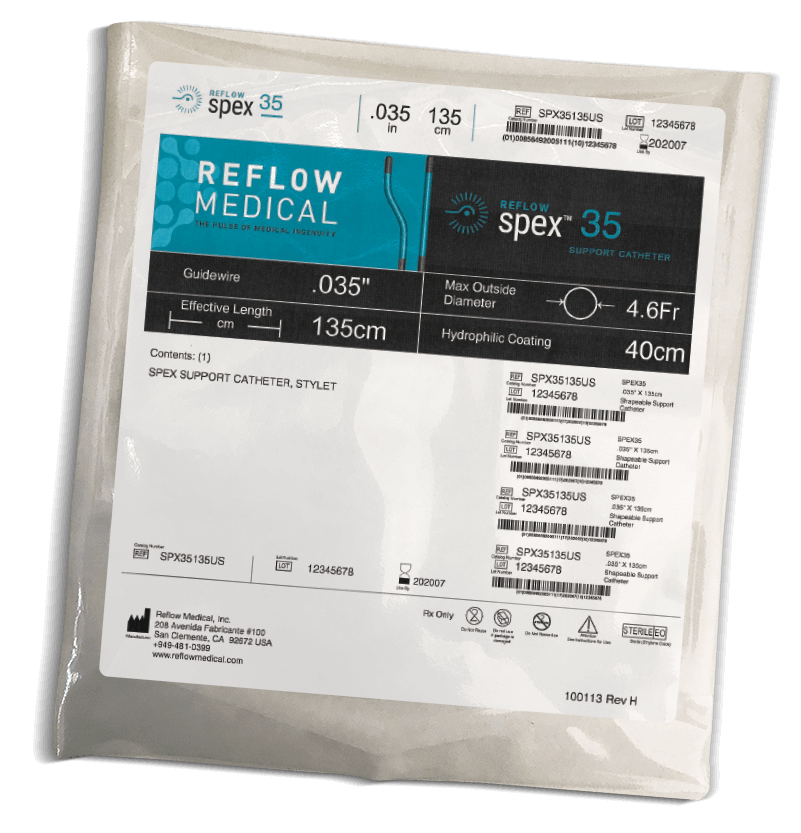
“The Spex Catheter makes it very easy to cross occlusions.”
– Jay Mathews, MD, MS, FACC
– Jay Mathews, MD, MS, FACC
- Stiff tip pierces through occlusions with guidewire
- Direct the tip into the micro channels as needed

Receive a no-obligation Reflow Spex Shapeable Support Catheter Kit. Simply complete the form below. No in-person demo required.*
Or contact us today.
+1 949 481 0399
Benefits & Features
- Promotes improved and predictable access to the vasculature.
- Designed to fill a specific need based on clinical feedback.
- Allows the physician to straighten or reshape the angle as needed.
- Helps the physician perform procedures more effective.
- Increases lubricity with a seamless, low-profile hydrophilic coating.
- Optimizes pushability and access through lesions

*Indications, Safety and Warnings
Prescriptive Information
CAUTION: Federal law (USA) restricts this device to sale by or on the order of a physician. Rx only. Prior to use, please see the complete “Directions for Use” for more information on Indications, Contraindications, Warnings, Precautions, Adverse Events, and Operator’s Instructions
Spex 14 18 35 Support Catheter
INTENDED USE/INDICATIONS FOR USE
The Spex Support Catheter is intended to facilitate placement and support of guidewires and other interventional devices within the peripheral vasculature and to allow for exchange of guidewires, and provide a conduit for the delivery of saline or contrast solutions.
CONTRAINDICATIONS
None known
WARNINGS
- The catheter is designed and intended for intravascular use only.
- This catheter is designed and intended for one time use only. Do not re-sterilize and/or reuse.
- This catheter should only be used by physicians qualified to perform percutaneous, vascular interventions.
- These catheters are not designed for use in the coronary arteries or the neurovasculature. Any use for procedures other than those indicated in the instructions is not recommended.
PRECAUTIONS
- Support Catheters are designed for use by physicians engaged in the practice of a specialized branch of medicine. Use of these devices should be restricted to those specialists trained to perform the procedure. A thorough understanding of the technical principles, clinical applications and risks associated with support catheters is necessary before performing this procedure.
- Precautions to prevent or reduce clotting should be taken when any catheter is used. Use of systemic heparinization should be considered.
ADVERSE EVENTS
Vascular catheterization and/or vascular interventions may result in complications including but not limited to:
- Access site pain
- Allergic reaction (drug, contrast, device & other) and neurological reactions
- Death
- Hemorrhage or hematoma
- Impaired blood flow due to thrombosis, embolism, or vasospasm that could lead to tissue infarction, limb amputation, and other thrombo-embolic organ damage such as renal infarction
- Infection/Sepsis
- Vessel injury (dissection, perforation, trauma & rupture)
- Vasospasm
- Impaired blood flow due to thrombosis, embolism, or vasospasm that could lead to tissue infarction, limb amputation, and other thrombo-embolic organ damage such as renal infarction
- Infection/Sepsis
- Vessel injury (dissection, perforation, trauma & rupture)
- Vasospasm


